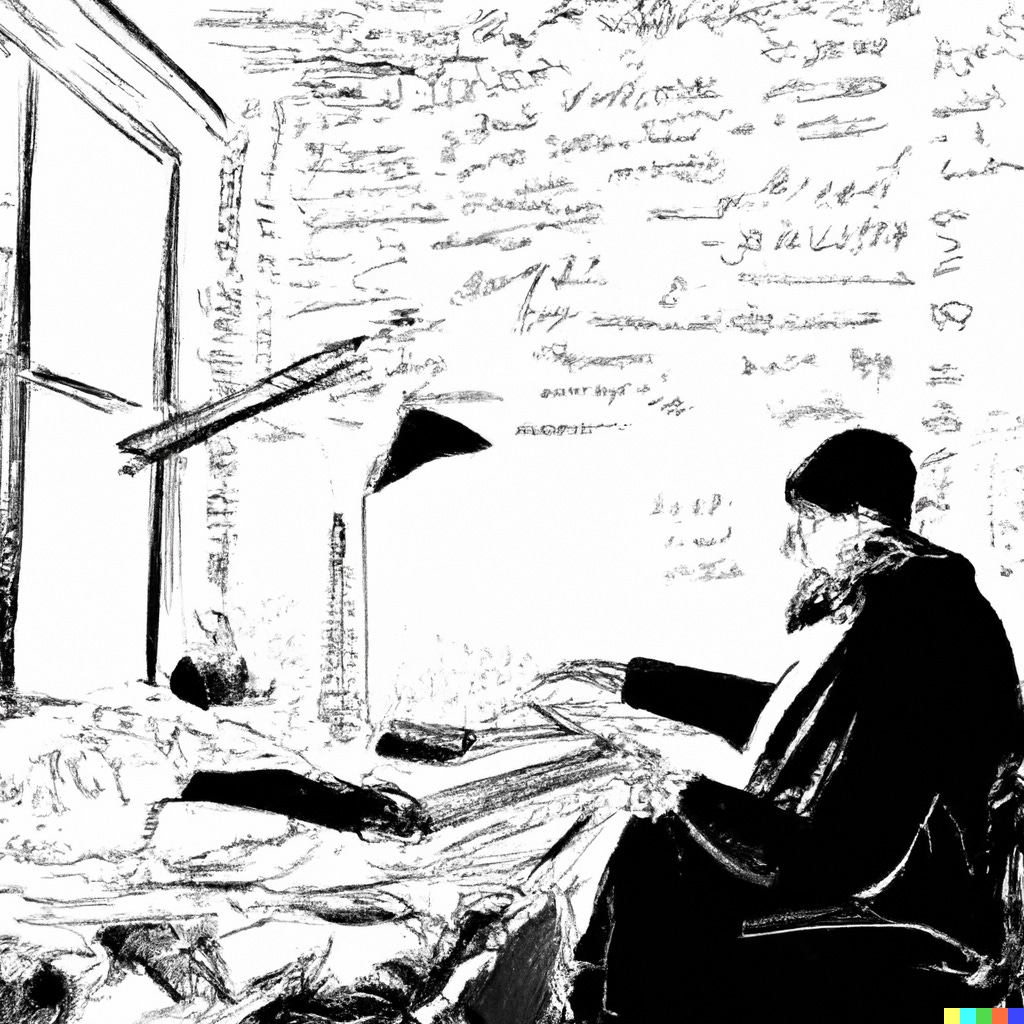Hi all,
Shane Parrish had an interesting tweet earlier this week, asking his followers “What’s a piece of advice that unlocked the next level for you?”
There were several perceptive responses from various people across the world:
“It’s easier to change yourself than to change the world.”
“My mentor required me to ask: ‘Is this who I really want to be?’ In almost any situation, it brought out a more useful response, action, or reaction.”
“‘That which you most need will be found where you least want to look.’ —Carl Jung”
My favorite was a reference to a quote from Gary Vaynerchuk, founder of the restaurant reservation app Resy:
"If you want to be an anomaly, you need to act like one."
Have a good rest of your weekend,
Brendan
The inspiration for this week’s article is a quote from Leo Tolstoy’s A Calendar of Wisdom:
“When people speak in a very elaborate and sophisticated way, they either want to tell a lie, or to admire themselves. You should not believe such people. Good speech is always clear, clever, and understood by all.”
Reading this, I realized that good writing is also like good speech. Clarity and brevity are critical. I also realized far too many emails, PowerPoint decks, and “white papers” I read at work violate this rule. They’re filled with overly complicated writing. How much time does that waste? How much information is lost?
We could all benefit each other by writing more clearly. Myself included. Here are a few thoughts I’ve come across on how to do so:
#1 Delete the excess:
“Rich, ornate prose is hard to digest, generally unwholesome, and sometimes nauseating. […] It is always a good idea to reread your writing later and ruthlessly delete the excess.”
—William Strunk Jr. and E.B. White (The Elements of Style)
As a consultant, I’ve been guilty of excess. Too many words and too much complexity. I’ll say “leverage” when I could just say “use”, or “can be a value driver” instead of “will benefit”. This kind of overly complicated writing is confusing and labored. Readers often skip it altogether.
Here’s a typical example of overly complicated writing from one company’s white paper:
“A plethora of enterprise use cases continues to emerge, providing organizations across industries the ability to develop new business models that transform value creation of all manner of physical and digital assets and streamline business processes across organizational boundaries.”
What?
#2 Write simply:
“I try to write using ordinary words and simple sentences. That kind of writing is easier to read, and the easier something is to read, the more deeply readers will engage with it. The less energy they expend on your prose, the more they'll have left for your ideas.”
—Paul Graham, (“Write Simply”)
Venture capitalist Paul Graham says there are three benefits to writing simply: 1) Your readers will understand your ideas more easily. 2) Your readers will be more open to engaging with your ideas. 3) The simple writing will be relevant for a longer period of time in the future.
I would also add a fourth benefit. Writing simply forces you to make sure you understand what you’re talking about. Putting a complex, difficult topic into simple words is the mark of expertise. Ray Dalio’s “How the Economic Machine Works” is an excellent example.
A valid concern with simple writing is that it may paper-over some nuances or complexities in an idea. That’s a good thing to watch out for, but writing simply doesn’t necessarily mean writing about simple ideas. Simple writing can still communicate rich thoughts, imagery, and emotions. Consider this sparing excerpt from Ernest Hemingway (Men Without Women) that still sets a vivid scene:
“Manual drank his brandy. He felt sleepy himself. It was too hot to go out into the town. Besides there was nothing to do. He wanted to see Zurito. He would go to sleep while he waited.”
I know that feeling of hot summer boredom.
#3 Make the investment:
“I didn’t have time to write you a short letter, so I wrote you a long one.”
—Mark Twain
Another challenge with writing simply and clearly is that it takes time. And who has a surplus of time these days? It’s tempting to quickly hammer away a winding, stream of consciousness email in the name of “efficiency”. It’s more efficient, though, to invest the time upfront to construct a much shorter and clearer note. It’s more likely to be understood that way—and much less likely to require time-consuming explanation after the fact.
Good writing takes a long time for everyone, even for the most talented writers. We’re all in on making this investment together, and lack of talent isn’t an excuse.
In his speech “Solitude and Leadership”, William Deresiewicz confirms why good writers are much slower than bad writers:
“I used to have students who bragged to me about how fast they wrote their papers. I would tell them that the great German novelist Thomas Mann said that a writer is someone for whom writing is more difficult than it is for other people. The best writers write much more slowly than everyone else, and the better they are, the slower they write. James Joyce wrote Ulysses, the greatest novel of the 20th century, at the rate of about a hundred words a day—half the length of the selection I read you earlier from Heart of Darkness—for seven years. T. S. Eliot, one of the greatest poets our country has ever produced, wrote about 150 pages of poetry over the course of his entire 25-year career. That’s half a page a month. So it is with any other form of thought. You do your best thinking by slowing down and concentrating.”
There you have it!
Thanks for reading! I love when these thoughts lead to conversations with readers. Did you find anything interesting or surprising? Reply to me and let me know.






